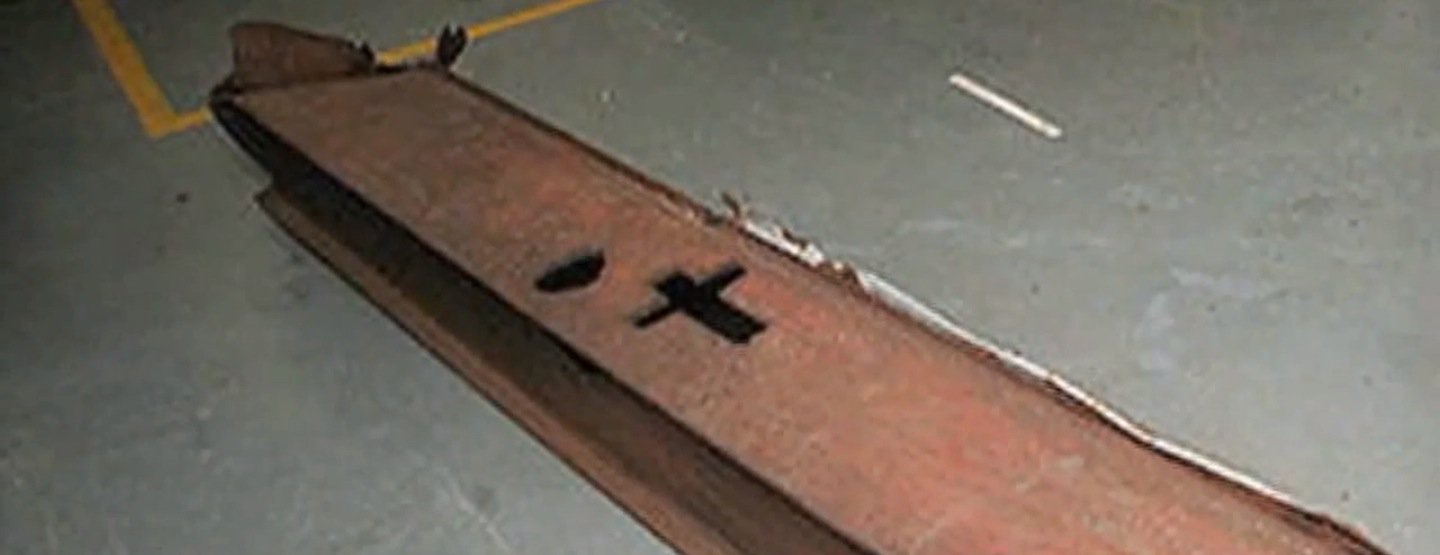Frank Camp IJ Review
There’s a new 9/11 memorial controversy brewing, and once again, it’s about a cross.
Deputy fire chief Roy James of Princeton, New Jersey, purchased the piece of steel containing a hole in the shape of a cross from the wreckage of the Twin Towers last year.
Now, James is fighting to have the beam installed as a memorial to those who died, telling Fox News that it’s not about the cross specifically, but about the metal: “It deserves to have respect and people being able to touch it. People died. The circles, the cut out of a cross, the bumps and bruises, the curves, everything that’s on this piece of steel reflects some part of that day and the sacrifice that thousands of people have given because of that day.”
The beam was allegedly the only piece of wreckage available, and according to James, it was not purchased with any specific religious objective in mind: “It’s a symbol of hope and a symbol of remembrance…It was never supposed to be a religious symbol. It was always supposed to be something that got people through. I’m Jewish and it doesn’t make me think of Christianity.”
But, in 2013, the American Atheists threatened legal action if items representing other beliefs weren’t allowed to be placed alongside the beam. An attorney for the organization sent a letter to Princeton Mayor Liz Lempert, which read in part:
“While the intention to commemorate those who died at the World Trade Center is admirable and appropriate for a community, the use of such a singular religious image will be grossly offensive and alienating to many people.”
There is precedent for this case. Several years ago, American Atheists sued to prevent steel beams from being displayed in the 9/11 museum in New York City because the beams were in the shape of a cross.
Last summer, the Second Circuit Court of Appeals ruled against American Atheists, stating: “American Atheists acknowledge that there is no historic artifact that speaks particularly to the loss of atheists’ lives or to atheists’ rescue efforts…we conclude that American Atheists’ challenge fails on the merits.”
Another possible location for the proposed memorial would be on the private property of Princeton University, in which case there would be no lawsuit.


